Current & Recent Projects
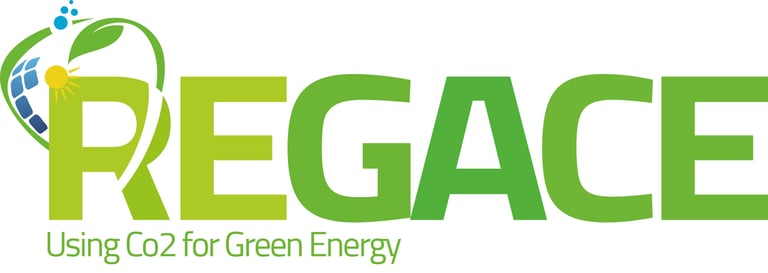

REGACE
Crop Responsive Greenhouse Agrivoltaics System with CO2 Enrichment for Higher Yields
The EU-funded REGACE project is dedicated to developing an innovative agrivoltaics technology to sustainably increase greenhouse yields and improve electricity production. The REGACE system is highly competitive providing affordable clean energy that combines optimum crop conditions with significant energy generation.
The use of CO2 enrichment expands agrivoltaics usage to areas with less sunshine and low light conditions, thus expanding usage opportunities.
In addition to the economic impact, this technology will also lead to significant positive effects on ecological sustainability and reduced carbon footprint as well as contribute to improving food and energy security.
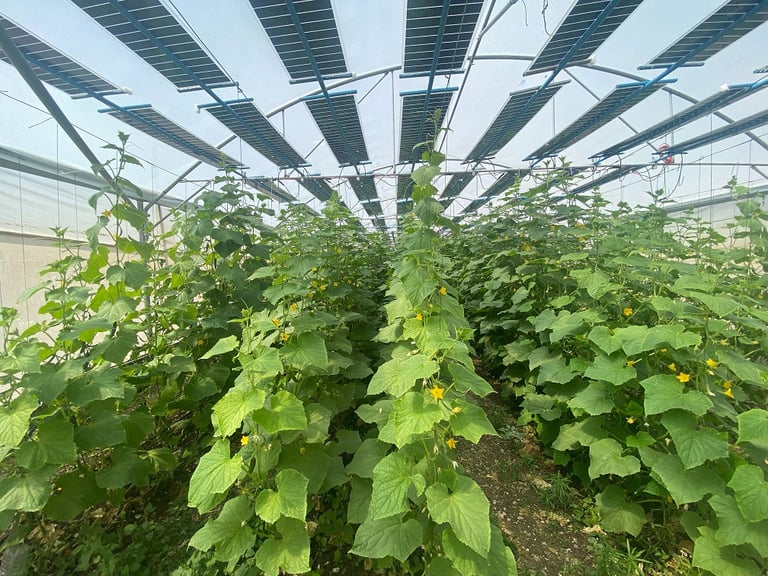



Iliad
Integrated DigitaL Framework for Comprehensive Maritime Data and Information Services
Iliad as an 18.9 million euro EU-funded project builds on two decades of investments in policies and infrastructures for the blue economy and aims to establish interoperable, data-intensive and cost-effective Digital Twins of the Ocean.
Iliad capitalises on many different Earth observation sources, advanced computing infrastructures (cloud computing, Internet of Things, Big Data, social networking, and more) in an inclusive, virtual and engaging fashion to address ocean data challenges. It contributes towards a sustainable ocean economy and creates a hub for global, multi-stakeholder co-operation.
To promote additional innovations, the partners will create the Iliad Marketplace. Like an app store, providers will use the Marketplace to distribute applications, plug-ins, interfaces, raw data, citizen science data, synthesized information, and value-adding services derived from the Iliad Digital Twins of the Ocean.
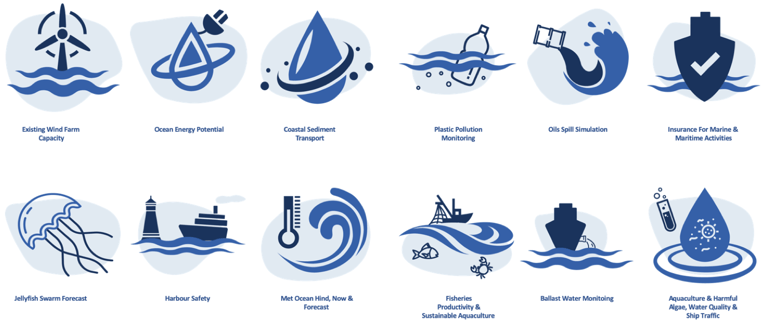

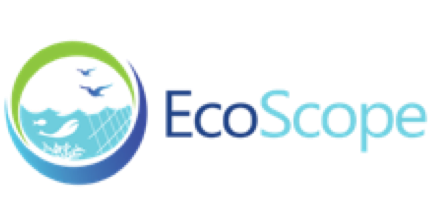

EcoScope
Ecocentric Management for Sustainable Fisheries and Healthy Marine Ecosystems
The EcoScope project is developing an interoperable platform and a robust decision-making toolbox, available through a single public portal (EcoScopium), to promote an efficient, ecosystem-based approach to the management of fisheries. The project addresses ecosystem degradation and the anthropogenic impacts that are causing fisheries to be unsustainably exploited across European Seas.
The EcoScope Platform will organise and homogenise climatic, oceanographic, biogeochemical, biological and fisheries datasets for European Seas for the users through interactive mapping layers.
The EcoScope Toolbox will host ecosystem models, socio-economic indicators, fisheries and ecosystem assessment tools that can be used to examine and develop fisheries management and marine policy scenarios as well as maritime spatial planning simulations.
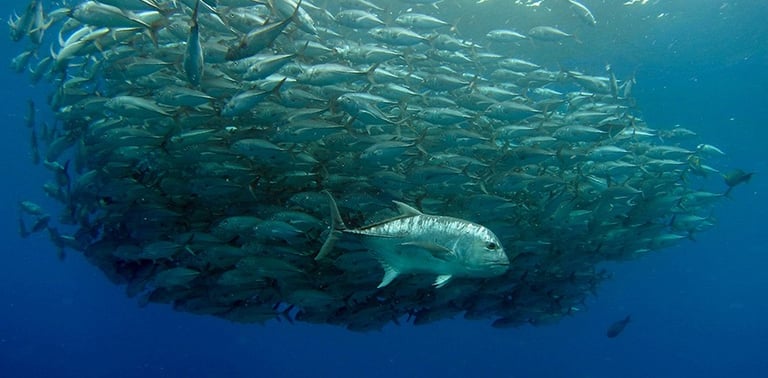


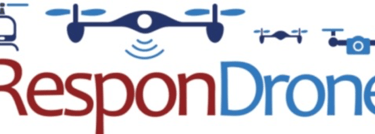
ResponDrone
Novel Integrated Solution for Operating a Fleet of Drones with Multiple Synchronised Missions for Disaster Response
ResponDrone is an international project co-funded by the EU and the Korean government, which is dedicated to developing and applying a fleet of drones operated by a single pilot in emergency situations, providing critical information and communication services to first responders.
The three-year project aims to develop an integrated solution for first responders to easily operate several drones with multiple synchronised missions to enhance their situation assessment capacity.
By using the innovative ResponDrone system, emergency response teams will be able to respond more rapidly, effectively and efficiently to an emergency or disaster and therefore save more lives. The fleet of drones will provide enhanced capabilities to support mission assessment, search and rescue operations, as well as forest fire fighting.

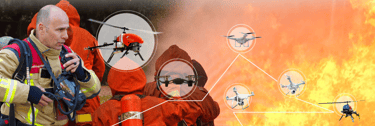
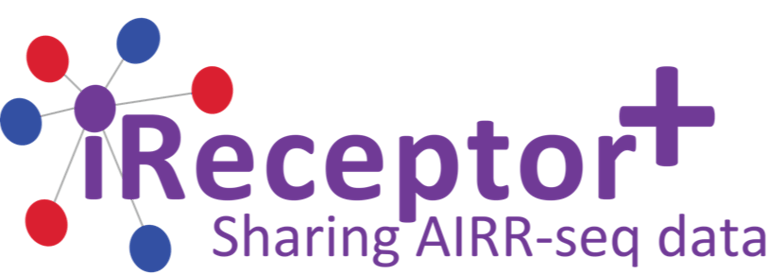

iReceptor+
Architecture and Tools for Antibody and T-cell Receptor Sequencing Data for Enabling Improved Personalised Medicine and Immunotherapy
The four-year project, which is co-funded by the EU and the Canadian government, aims to develop an innovative platform to integrate distributed repositories o f Adaptive Immune Receptor Repertoire sequencing (AIRR-seq) data.
This information will be used for enabling improved personalised medicine and immunotherapy in cancer, inflammatory and autoimmune diseases, allergies and infectious diseases.
The project will offer a totally new class of biomarkers to support novel treatments. The ability to share and compare AIRR-seq data will also promote the discovery of biomedical interventions that manipulate the adaptive immune system such as vaccines and other immunotherapies.
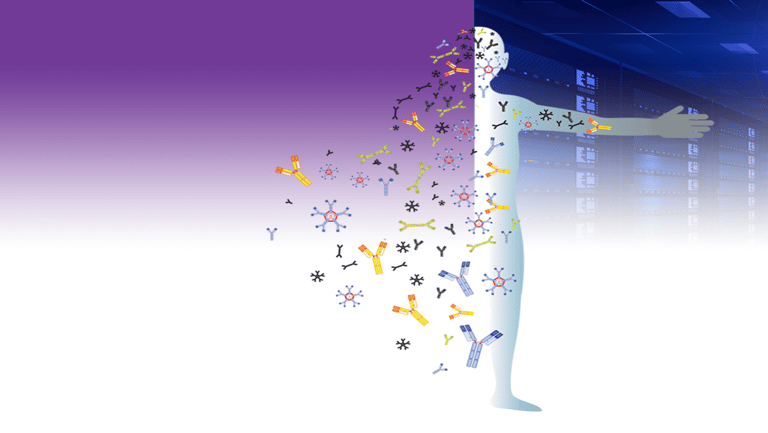


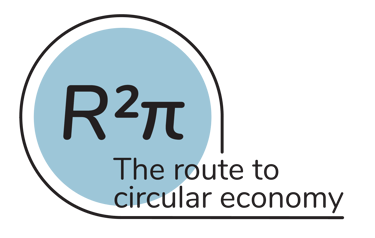
R2Pi
Transition from Linear to Circular: Policy and Innovation
R2π is a three-year project within the environment theme of Europe's Horizon 2020 programme. It examines ways to shift from the broad concept of a Circular Economy to one of Circular Economy Business Models while searching for both market failures and policy failures that hinder the broad implementation, use and acceptance of circularity.
The uniqueness of the R2π project is in having a strong business orientation that goes beyond environmental goals and in examining the role of innovative business tools and policy packages on the diffusion of circular business models.
Case studies covering different sectors and countries followed by quantitative analyses enable the project partners to identify best practices and develop the R2π toolbox and policy guidelines to support both business leaders and policy makers.
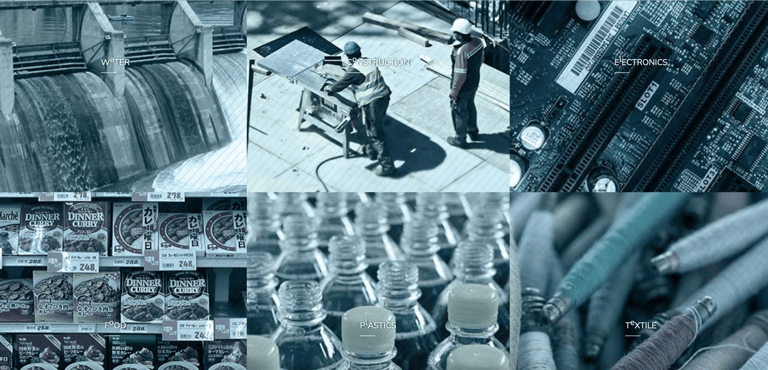

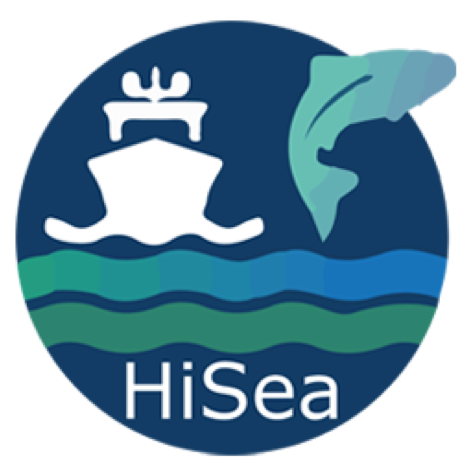

HiSea
High Resolution Copernicus-based Information Services at Sea for Ports and Aquaculture
HiSea is an EU-funded project that aims to develop, test and demonstrate information services that provide high resolution data of water quality at sea. The services deliver accurate and reliable information, readily available, easily understandable to fit the users’ operation, planning and management requirements.
HiSea incorporates and processes data that are obtained through the marine, land and climate services COPERNICUS (the EU Earth Observation and Monitoring service), local monitoring data and advanced modelling.
The platform improves operation, planning and management of different marine activities, with a focus on usage in the port and aquaculture sectors.
ODYSSEA
Operating a Network of Integrated Observatory Systems in the Mediterranean Sea
ODYSSEA develops, operates and demonstrates an interoperable and cost-effective platform that fully integrates networks of observing and forecasting systems across the Mediterranean basin, addressing both the open sea and the coastal zone.
The platform will collect its data from the many databases maintained by agencies, public authorities, and institutions of Mediterranean EU and non-EU countries, integrating existing earth observation facilities and networks in the Mediterranean Sea building on key initiatives such as Copernicus, GEOSS, EMODNet and many others with marine and maritime links.
ODYSSEA improves accessibility to existing data as well as increases the temporal and geographic coverage of observational data in the Mediterranean.
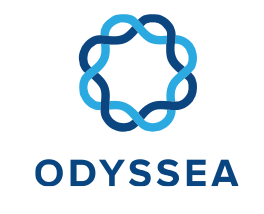

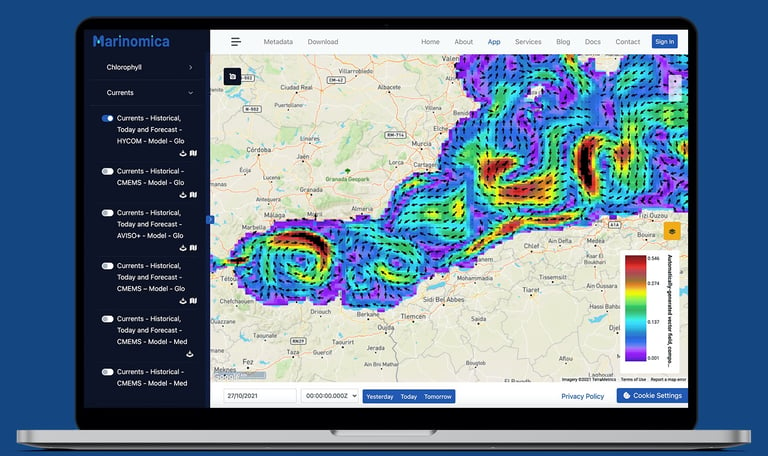

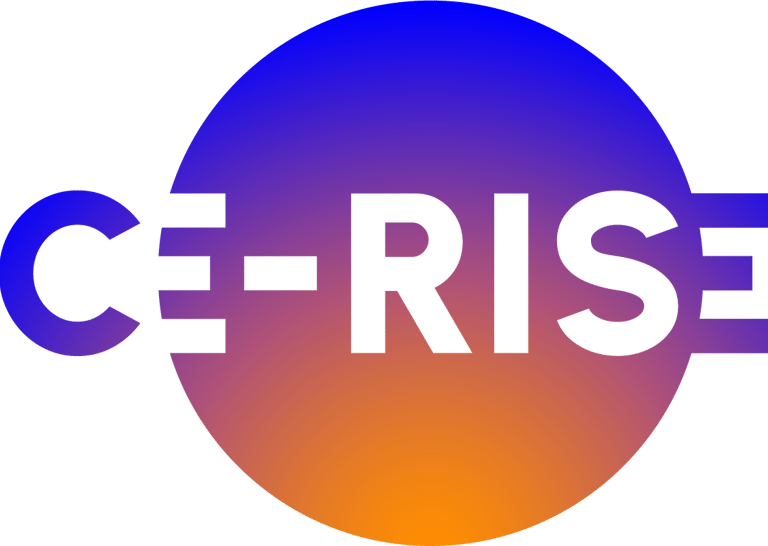

CE RISE
Circular Economy Resource Information System
The EU project, CE RISE, aims to optimise reuse of critical raw materials, thus minimising waste and stimulating circular business models, including making it easier for end consumers to make more sustainable choices.
With digital passports for products, it will be easier for industries to trace raw materials from production, through use, all the way to how and where they are treated as waste. CE-RISE will develop and pilot this integrated framework and ensuing resource information system to identify optimal solutions for the effective reuse, recovery, and recycling of materials.
Ultimately, CE-RISE will foster a dynamic ecosystem geared toward prolonging the use of materials in the economy, and stimulate circular business models that reduce waste generation while optimising the reuse of secondary raw materials.
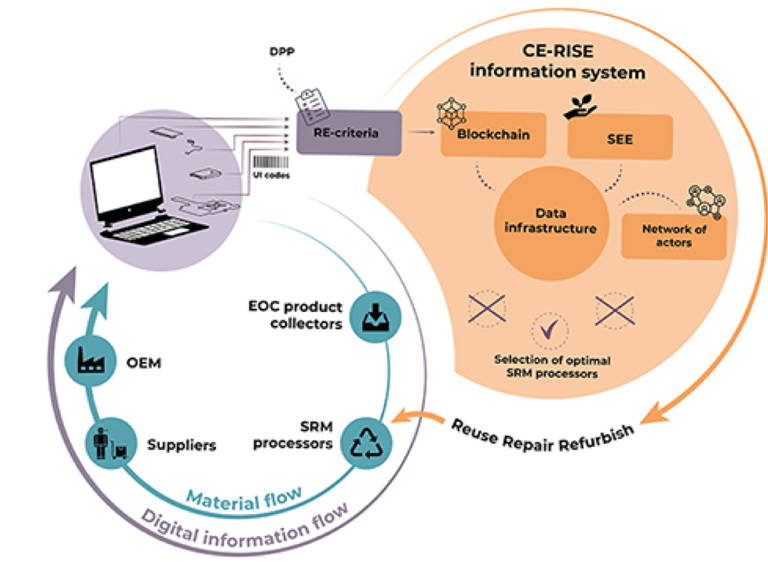

Circular Electronics Partnership
A System Transformation for the Electronics Industry
The Circular Electronics Partnership (CEP) unites leaders in tech, consumer goods and waste management, to identify how to do things better for future sustainability.
It aims to reimagine the value of electrical products and materials using a lifecycle approach, reducing waste from the design stage through to product use and recycling.
The vision includes all types of electronic and electrical equipment from six product categories: temperature exchange equipment, screens and monitors, lamps, large equipment, and small IT.
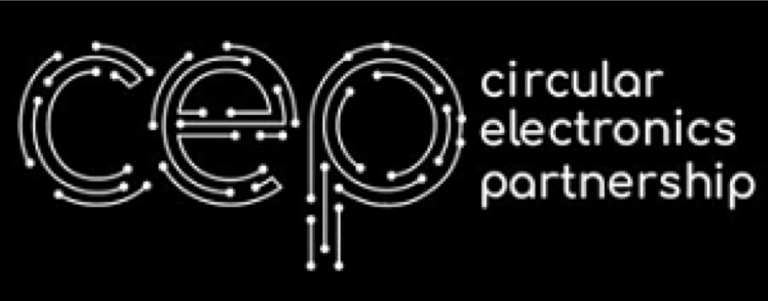

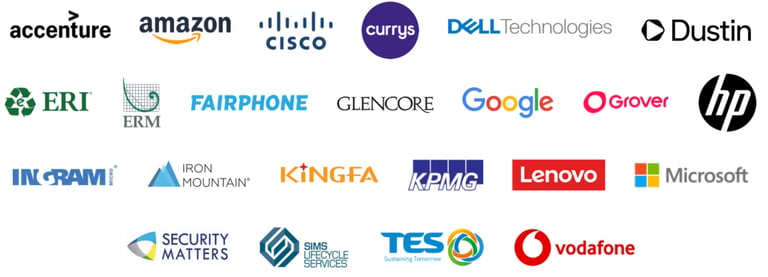



GeSI
Global Enabling Sustainability Initiative
GeSI is an inclusive and open multi-sectoral, multi-stakeholder organisation embracing a challenging agenda, driven by leading visionary and committed global organisations.
GeSI holds the firm belief that responsible business, with digital sustainability at its core, will make for the most successful companies in the years to come. It supports efforts that ensure environmental and social sustainability because they are inextricably linked in their impact on society and communities around the globe.
GeSI is comprised of diverse and international members and partnerships, representing around 40 of the world’s leading ICT companies, 12 global business and multiple international organisations, such as the International Telecommunications Union (ITU), the United Nations Framework Convention on Climate Change (UNFCCC), the United Nations Environment Program (UNEP), the International Chamber of Commerce (ICC), the World Business Council for Sustainable Development (WBCSD), the Carbon Disclosure Project (CDP) and many others.


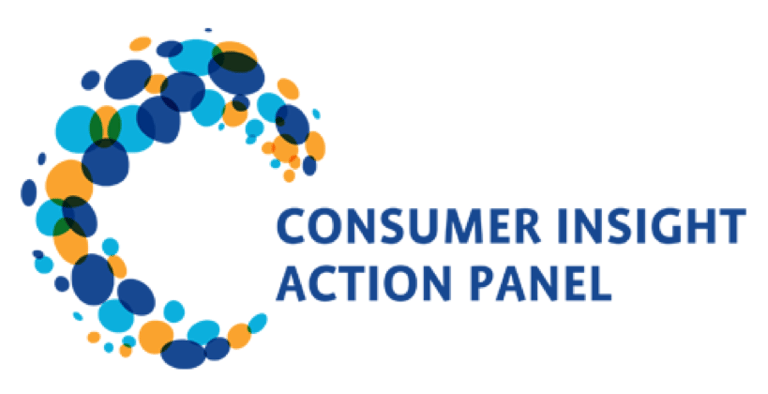

CIAP
Consumer Insights Action Panel
EU policies and decision makers have recognised the importance of understanding and integrating consumer knowledge and behavioural insights into the circular economy transition. Nevertheless, there is still limited research with specific regard to the circular economy and the need to consider behavioural and consumption aspects.
To address this gap, in partnership with the European Circular Economy Stakeholder Platform, the Consumer Insight Action Panel has been set up to generate, apply and test consumer behavioural insights. It includes various stakeholders, including business, municipalities, NGOs, start-ups and researchers to learn and take action on the circular transition.




Digital with Purpose
Accelerating Action through Digital Technologies
DwP is a movement of leaders joining forces in a race to deliver against the Paris Agreement and Sustainable Development Goals by 2030, believing in a world where technology, innovation and collaboration can transform the fortunes of our planet.
In order to track company progress in the movement, a framework has been developed to monitor performance in both delivering digital solutions to societal and environmental challenges, as well as in minimising the negative impacts arising from the deployment of digital products and services.
Companies are scored against a sliding performance scale, with a minimum score required by all member companies. The six priority areas identified include Purpose, Climate Change, Circular Economy, Supply Chain, Digital Inclusion and Digital Trust & Responsibility.
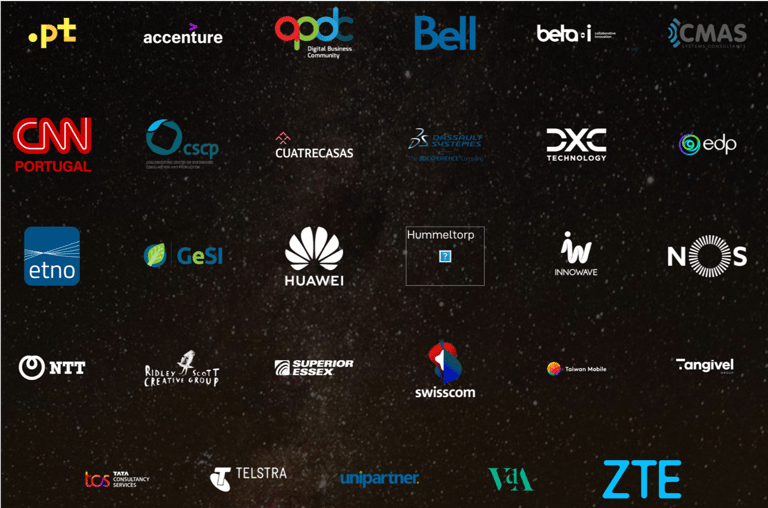

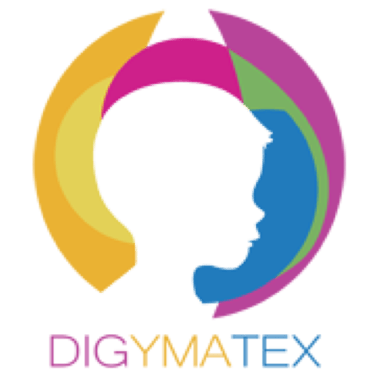

DIGYMATEX
Development of a Digital Youth Maturity Index
The DIGYMATEX index is an innovative tool that will establish and implement a comprehensive understanding and taxonomy of children’s digital maturity. Users of it will be able to predict and explain benefits and risks arising from children’s technology-related behaviour.
In addition, the DiGYou3-program will develop a technology-related solution and recommendation program based on levels for individual, social and national. It will inform relevant stakeholders and practitioners of the long-term effects of communication technology on child behaviour in order contribute to a safer and more beneficial use of digital technologies for children.
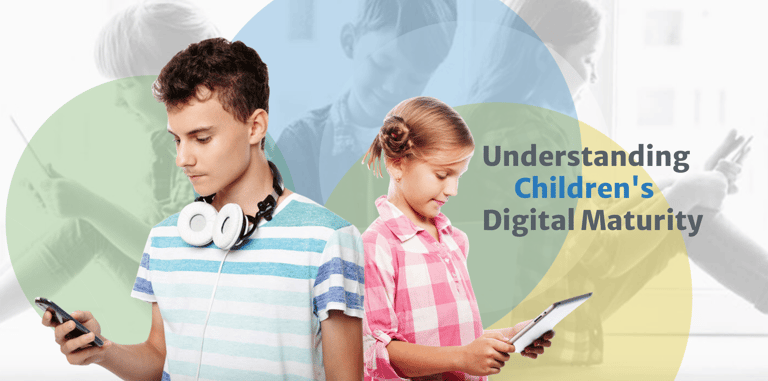

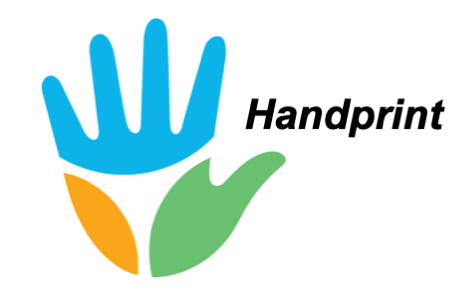

Handprint
A Complementary Measure of Positive Sustainability Impacts of Products
The Handprint methodology is an innovative and holistic approach to facilitate the measurement, evaluation, and communication of the ecological, economic and social sustainability impacts of products.
The existing approach of the footprint focuses on negative ecological impacts on individuals, organizations or countries. The handprint on the other hand determines, measures and evaluates positive sustainability impacts including the social and economic dimensions.
The project has developed the handprint methodology to support innovative management and contribute to the sustainable development of improved products.


